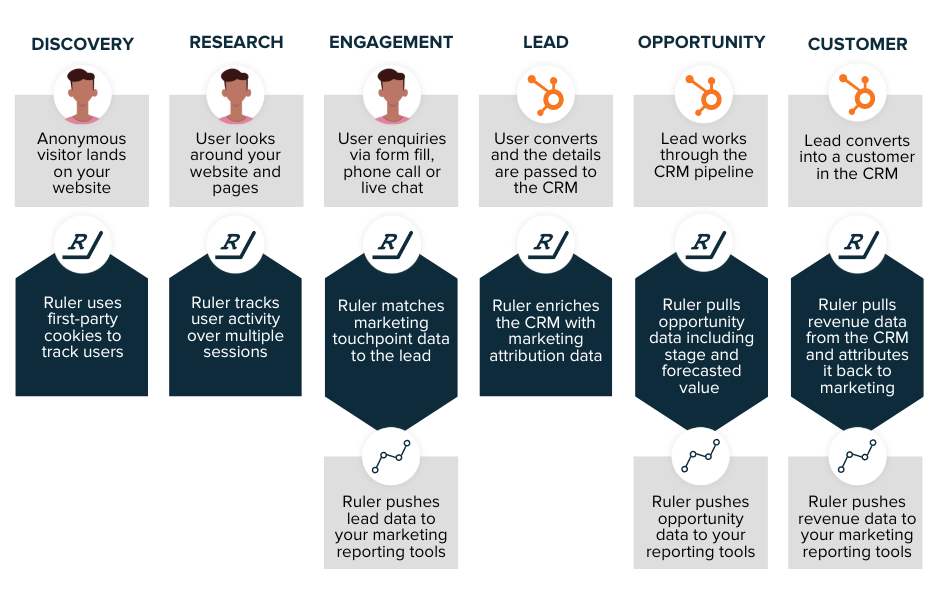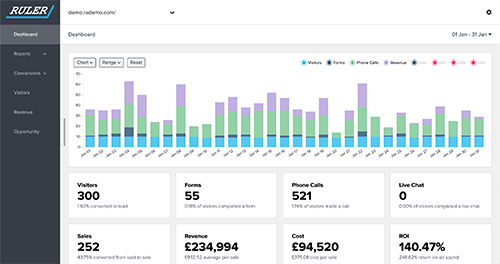If you use HubSpot as a CRM and sell a subscription-based product or solution, then you need to be able to manage your recurring revenue in HubSpot.
Thankfully, there are a few ways to do this.
We’ll walk you through how to track recurring revenue in HubSpot, plus a few ways to get more data on your marketing efforts.
How to set up recurring revenue tracking in HubSpot
There are several steps to creating tracking for your recurring revenue in HubSpot.
First, you need to create recurring revenue properties.
Next, you need to add values to those recurring revenue properties.
Let’s go through it step by step.
Create recurring revenue properties
To get started with tracking recurring revenue, you need to create properties in your HubSpot CRM.
- Head to Reports, and then Analytics Tools
- Select Revenue Analytics
- Click Add properties and start tracking
- Then in the pop-up box, click Create properties
Once you’ve done this, that will create four new properties in HubSpot. They are:
- Recurring revenue amount
- Recurring revenue deal type
- Recurring revenue inactive date
- Recurring revenue inactive reason
Add values to recurring revenue properties
Once you’ve created your revenue properties, you then need to add values.
Entering values is easy.
In your HubSpot account, head to Sales and then Deals.
Click the name of a deal and then View all properties in the about section.
To edit the values, you just need to select the pencil icon and add values based on which events are happening.
There’s an easy way to add in the right details to the right places.
You’ll just need to amend based on
- New business
- Churn
- Renewal
- Upgrade/downgrade
Where does recurring revenue in HubSpot fall short?
While HubSpot offers a good solution for tracking recurring revenue, it’s still a very manual task.
Marketing attribution is a great solution you can use to automate that process.
It automatically tracks touchpoints for every single user to your website and links touchpoints to your conversions.
It allows you to view where your leads have come from. And, even better, it automatically links closed revenue back to your analytics tools.
Attribution leaves you with definitive proof that marketing is driving leads and revenue.
How attribution with Ruler can close the loop
Marketing attribution is the perfect solution to close the loop between your sales and marketing activity.
Ruler Analytics is a leading attribution tool. It works like this.

It tracks users throughout their entire customer journey, collecting and collating data on how they engage with your site and content.
Related: How to track full customer journeys with Ruler
When leads close, Ruler can scrape revenue data from your CRM and fire it to your analytics tools.
And this works for recurring revenue too.
In tools like Google Analytics and ChartMogul, you’ll get a clear understanding of how recurring revenue is best generated by your business.
Related: How Ruler enriches your attribution reports in Google Analytics
Book a demo of Ruler to see how to get started with attribution, or read more on how marketing attribution works.
Related articles:
HubSpot Attribution: A complete guide
Ruler Analytics vs HubSpot: Comparison and analysis
11 HubSpot alternatives you need to try
How to track marketing leads in HubSpot

